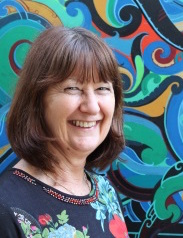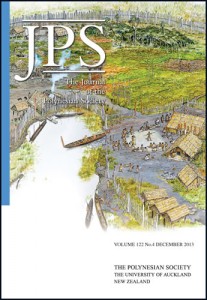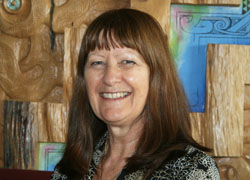Publishing award
 Congratulations to Lyn Carter, the coordinator of our Indigenous Development Programme, for her recent article co-written with Janet Stephenson (Centre for Sustainability) and Claire Freeman (Geography) from Otago, and others in the journal Society & Natural Resources.
Congratulations to Lyn Carter, the coordinator of our Indigenous Development Programme, for her recent article co-written with Janet Stephenson (Centre for Sustainability) and Claire Freeman (Geography) from Otago, and others in the journal Society & Natural Resources.
The article won the S & NR best publication award for 2019. Click on the link to read it: Hybrid Neoliberalism Implications for Sustainable Development
The Otago Peninsula: A Unique Identity
 It’s wonderful to see Te Tumu’s emerging scholars getting their research out to the world. Megan Pōtiki, one of our teaching staff and also undertaking doctoral studies, has just published an article on the Otago Peninsula in Shima: The International Journal of Research on Island Cultures. The full text of the article can be accessed here.
It’s wonderful to see Te Tumu’s emerging scholars getting their research out to the world. Megan Pōtiki, one of our teaching staff and also undertaking doctoral studies, has just published an article on the Otago Peninsula in Shima: The International Journal of Research on Island Cultures. The full text of the article can be accessed here.
Ka taea te kī mō tēnei tuhinga, “Mō tātou, ā, mō kā uri, ā, muri ake nei”.
The Otago Peninsula: A Unique Identity
ABSTRACT: The Otago Peninsula on the South Island of New Zealand has a long indigenous Māori history that is rooted in the land and the people of the area. The stories and genealogy that connect Māori New Zealanders to the Otago Peninsula are well documented and retold. After European contact with and connection to the Peninsula was initiated the colonisation of the area occurred rapidly. The Otago Peninsula historically, and to the present day, has always had a separate chartacter to that of the adjascent mainland (around the city of Dunedin). Despite the short distance between them, the culture of the Otago Peninsula remains distinct to that of the mainland as if it were an island.
Journal News
Dr Lyn Carter is a Senior Lecturer in Te Tumu, and the Coordinator of our Indigenous Development programme.
Marginalisation occurs when a group of people are pushed to the periphery of a society. Many Māori reside at the margins of ‘mainstream’ society, while others are at the margins of Māori society. The present paper explores how ‘by Māori, for Māori’ research and evaluation can create spaces for voices from the margins to be heard. The paper arose out of a series of hui in which papers on the notion of marginalisation and Māori were presented and discussed, along with the broader topic of research ethics and protocols. Three themes that emerged from these hui are considered in this paper: relationships between researchers and participants/communities, researchers knowing themselves, and the safety aspects inherent within tikanga. The discussion of these themes draws upon the papers that were written for this project, the feedback from hui participants (researchers, students, health professionals, government workers, community providers), and local and international literature on research ‘by and with’ indigenous peoples. In making the ‘knowing’ we hold about these issues more explicit, this paper aims to generate more discussion as well as provide some small guidance for those who may be new to this thing called ‘research’.
The Journal of the Polynesian Society has been going for a little longer…
 9 Reasons to Publish in the Journal of the Polynesian Society
9 Reasons to Publish in the Journal of the Polynesian Society
- For nearly 125 years, an international forum for the dissemination and discussion of cross-disciplinary research of and by Pacific peoples (broadly defined), past, traditional, and contemporary.
- Submissions welcomed from anthropology, linguistics, history, politics, sociology, visual arts and material culture studies, archaeology, biological anthropology, indigenous studies, and cultural geography
- Issues published quarterly, peer-reviewed; full length research articles (up to 15,000 words) and shorter communications
- Member of CrossRef index service, articles DOI-supported, Journal of Citation Reports rated
- Rapid submission-to-print turn-around time
- Guest-edited Special Issues welcomed & available for one-off purchase
Links:


